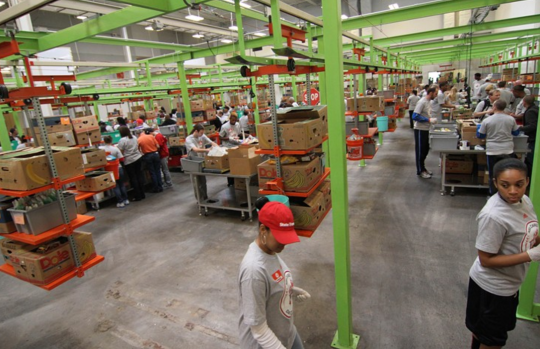
Retailers were quick to assist those in need in the wake of Hurricane Harvey’s devastation throughout Texas. Almost every major retailer donated money to a relief fund. Additionally, The Home Depot and Lowe’s donated products to Texas stores to help people repair damage as soon as possible, and Bass Pro Shops provided more than 80 boats to support rescue and relief operations.
But there is still plenty of work to be done, and the effects of Hurricane Harvey will undoubtedly be felt in both the short- and long-term.
Leading organizations donating money and assisting with relief efforts include the American Red Cross, The Humane Society, Americares, The Hurricane Harvey Relief Fund, The United Way and The Houston Food Bank.
The RTP team discusses how national retailers can continue to help during the relief efforts, spotlights how local retailers are coping with the situation and speculates on the potential impact of higher gas prices.
Debbie Hauss, Editor-in-Chief: Harvey has left its imprint and Irma is on its way. The scariest part of impending weather disasters is their unpredictability. The best everyone can do is prepare for the worst, from homeowners to government entities and businesses. Our first reaction should be to offer help in whatever way we can. Then, thinking about the go-forward impact, businesses must react to survive and thrive, for their own well-being and the well-being of the communities they serve. With gas prices increasing rapidly as a result of Harvey’s wrath, consumers may think twice about car travel in the near term, and product shipping prices will likely increase. In response, with consumer priorities shifting, retailers may need to rethink their holiday marketing strategies to some degree. Necessities may outweigh bling when it comes to gift-giving this season.
Adam Blair, Executive Editor: Hurricane Harvey effectively turned off the spigot for as much as one-third of the nation’s fuel refining capacity, according to the New York Times. In my area, I saw pump prices shoot up 20 to 25 cents per gallon just before the Labor Day weekend. The Times quotes experts saying that every extra penny at the pump costs Americans $4 million per day. If the oil industry’s recovery is slow and gas prices stay high for an extended period, the double whammy — less disposable income, and yet another disincentive to drive to the mall — could slow holiday sales, particularly for brick-and-mortar retailers. If they haven’t already, retailers should ensure they’re offering plenty of digital sales options — perhaps with the incentive of free- or low-cost shipping — to counter this particular “storm surge.”
Marie Griffin, Managing Editor: I just paid $4.25 each for three 14-pound boxes of name-brand kitty litter, and had them delivered to my door within two days for free because my order was over $35. My other purchases were either cheap and heavy, or cheap and bulky — total losers in terms of shipping costs. This relates to Harvey because of gas prices. The hurricane and flooding in the Gulf raised prices, but economists don’t think the bump at the pump will last. For now that’s good, but some disaster or change in strategy among oil producers will inevitably cause a more lasting oil price climb, and shoppers will still expect free shipping regardless of your fulfillment costs. So while Harvey is on your mind, now is the time to prepare for probable future fuel price spikes and make your supply chain lean, mean and super-efficient.
Glenn Taylor, Senior Editor: I see this as a large opportunity for local retailers to take a greater role in their community, especially as shoppers need to return to a sense of normalcy throughout their day-to-day lives. Obviously, the effects of Hurricane Harvey have hampered sales on their end, but in donating, providing shelter or participating in events, it seems these retailers would be able to build more relationships with potential shoppers. Beyond Texas, I think any number of retailers could stand to learn from this mindset. It doesn’t have to take a natural disaster to encourage community building, and brands would be much better off if they kept themselves in the public consciousness as being willing to help out whenever necessary.
Klaudia Tirico, Features Editor: A weather disaster of Harvey’s magnitude is, of course, devastating, but it also brings out the best in people. The way the entire country came together to help those affected by the hurricane brought some light into a very dark situation. Retailers such as Amazon, Walmart and Bass Pro Shops really stepped up to the plate to help the victims, but I couldn’t help but wonder what will happen to the small businesses and retailers in the eye of the storm. How will they get back on track? I have to commend First Data, a commerce technology provider, for its initiative to help businesses affected by Harvey. The company sent thousands of its Clover Go mobile credit and debit card readers to the Houston area to give to the business owners affected. This is a heartwarming example of how retail technology companies can do their part to help Harvey victims, and the local economy, get back on its feet.






